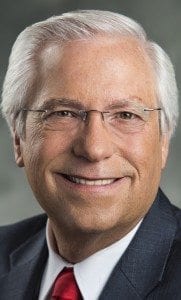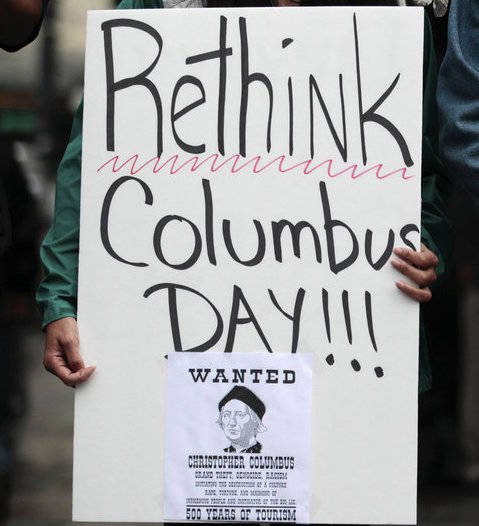BY BILL JOHN BAKER
 Tulsa is the heart of Indian Country in America, and I applaud the city’s leaders for adopting Native American Day on the second Monday in October. This move is important and the right thing to do. Tulsa has been and will always be shaped by the tribes that live in the region. It is part of Cherokee Nation’s history and jurisdiction. Almost 35,000 Cherokees live in the Tulsa area. Tribes, including the Cherokee, Osage and Muscogee Creek, have lived and embraced this region prior to statehood.
Tulsa is the heart of Indian Country in America, and I applaud the city’s leaders for adopting Native American Day on the second Monday in October. This move is important and the right thing to do. Tulsa has been and will always be shaped by the tribes that live in the region. It is part of Cherokee Nation’s history and jurisdiction. Almost 35,000 Cherokees live in the Tulsa area. Tribes, including the Cherokee, Osage and Muscogee Creek, have lived and embraced this region prior to statehood.
The city of Tulsa, the state of Oklahoma and our country itself should recognize this truer and more accurate celebration of life, culture and influence. Native people had a history and heritage in the Americas long before Christopher Columbus ever set sail.
Proper historians know that Christopher Columbus did not discover America. The truth is that he committed atrocities, including slavery and genocide, against Native peoples. He was a destroyer of culture. Perpetuating the Columbus myth does not make us better as Americans, in fact it does the opposite. It makes all less aware of our history and our reality today. Celebrating antiquated and highly inaccurate chapters of history does a disservice to everyone, especially our youth, and our future together.
Every tribe’s history is different, but largely, the United States of America and its founding documents grew up around and within Native American tribes and our cultures. My hope is that Native American Day will encourage people to learn about and respect Native contributions to history and this country.
Tulsa joins other Oklahoma cities like Anadarko, McAlester, Norman and Tahlequah, the capital city of the Cherokee Nation, to embrace the day’s name.
Nationally, cities with high Indian populations have rebranded the day as Indigenous Peoples Day, a national movement led by the National Congress of American Indians. Major cities like Albuquerque, Minneapolis, Phoenix and Seattle have joined states like Alaska and South Dakota in making the transition.
The Greater Tulsa Indian Affairs Commission, an intertribal group and a city of Tulsa appointed commission that has many strong Cherokee leadership voices, deserves credit for spearheading this effort. Thanks goes to Mayor G.T. Bynum as well. Early in his tenure he made a commitment to work with and listen to Tulsa’s tribal partners like the Cherokee Nation and has fulfilled that promise.
As Indian people, we have left an undeniable impact in America and here in Oklahoma. We have one of the largest Native American populations in the United States. Cherokee Nation alone has an economic impact in northeast Oklahoma of more than $2 billion. The other 37 federally recognized tribes also make significant contributions, both financially and culturally, to our home state.
Tribes are a good partner in Oklahoma’s success from job creation to infrastructure development, and we are good stewards of our vital natural resources – air, water and land. I think these things are worth celebrating.
It is time to embrace Native American Day or Indigenous Peoples Day. Whatever it is called, the spirit is honorable and justified. Oklahoma should be the national leader in honoring the culture, heritage and traditional lifeways of our ancestors and of who we are today as successful and modern sovereign governments. This day honors our tribal people and the tribes of Oklahoma.
– Bill John Baker is principal chief of the Cherokee Nation








